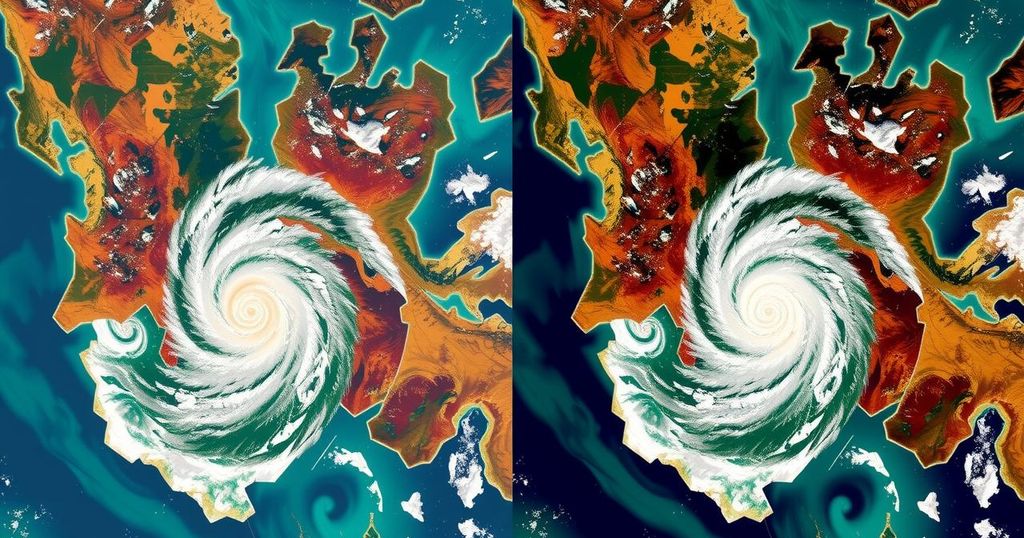Cyclone Chido Causes Devastation in Agalega and Mayotte

Tropical Cyclone Chido made landfall in Agalega on December 11, 2024, as a powerful Category 4 storm, causing significant devastation to infrastructure and leading to residents seeking refuge. The cyclone later impacted Mayotte, resulting in further destruction and humanitarian crises, with many families left homeless and urgent relief efforts underway.
On December 11, 2024, Tropical Cyclone Chido struck the island of Agalega in the Indian Ocean as a Category 4 equivalent system. This powerful cyclone, recording winds of 222 km/h (138 mph), has been recognized as the most intense cyclone to impact Agalega since 1983. The cyclone has inflicted significant damage across both of Agalega’s islands, disrupting basic infrastructure such as homes and schools, leading many residents in the North Island to seek shelter at the airport.
The storm wreaked havoc with strong wind gusts and a storm surge measuring up to 8 meters (26 feet). As a result, most of the homes and educational institutions on the islands have been devastated, and vital communication lines have been severed. In response to the calamity, Mauritian Minister Shakeel Mohamed announced the deployment of a Mauritian Coast Guard Dornier aircraft to assist in relief efforts, alongside an Indian cargo plane expected to join the mission.
Following its impact on Agalega, Cyclone Chido moved to the northwest, directly striking Mayotte on December 14. The cyclone produced devastating conditions there, resulting in torrential rainfall, severe storm surges, and destructive wind speeds of up to 220 km/h (136 mph). The aftermath has led to extensive destruction, including flattened homes and uprooted trees, crippling critical infrastructure such as hospitals and airports.
Initial assessments reveal that around one-third of Mayotte’s population, approximately 320,000 residents, have been rendered homeless. Authorities face severe challenges regarding access to many affected areas due to flooded roads and destruction. Emergency teams have been deployed to manage the crisis, but shortages of drinking water and medical supplies hinder effective recovery efforts. Furthermore, on December 16, Mayotte officials warned that the death toll could ascend significantly, with fears that hundreds, if not thousands, are still unaccounted for. The full extent of destruction and human impact remains to be determined.
Cyclone Chido represents a significant weather event, as it is the most powerful cyclone to have affected Agalega in over four decades. The cyclone struck with extraordinary force, inflicting unparalleled damage and highlighting vulnerabilities in the region’s infrastructure. Its subsequent path to Mayotte has further exacerbated the situation, showcasing extreme weather’s potential to disrupt lives and community resilience. These events call attention to the need for preparedness in the face of escalating climate-related disasters.
In summary, Tropical Cyclone Chido has demonstrated the devastating impact of severe weather, particularly on vulnerable island communities like Agalega and Mayotte. The cyclone has brought considerable destruction, leading to urgent humanitarian needs and complicating recovery efforts. With the situation continuously evolving, authorities must mobilize resources to assist affected populations and address the immediate challenges posed by such natural disasters.
Original Source: watchers.news







